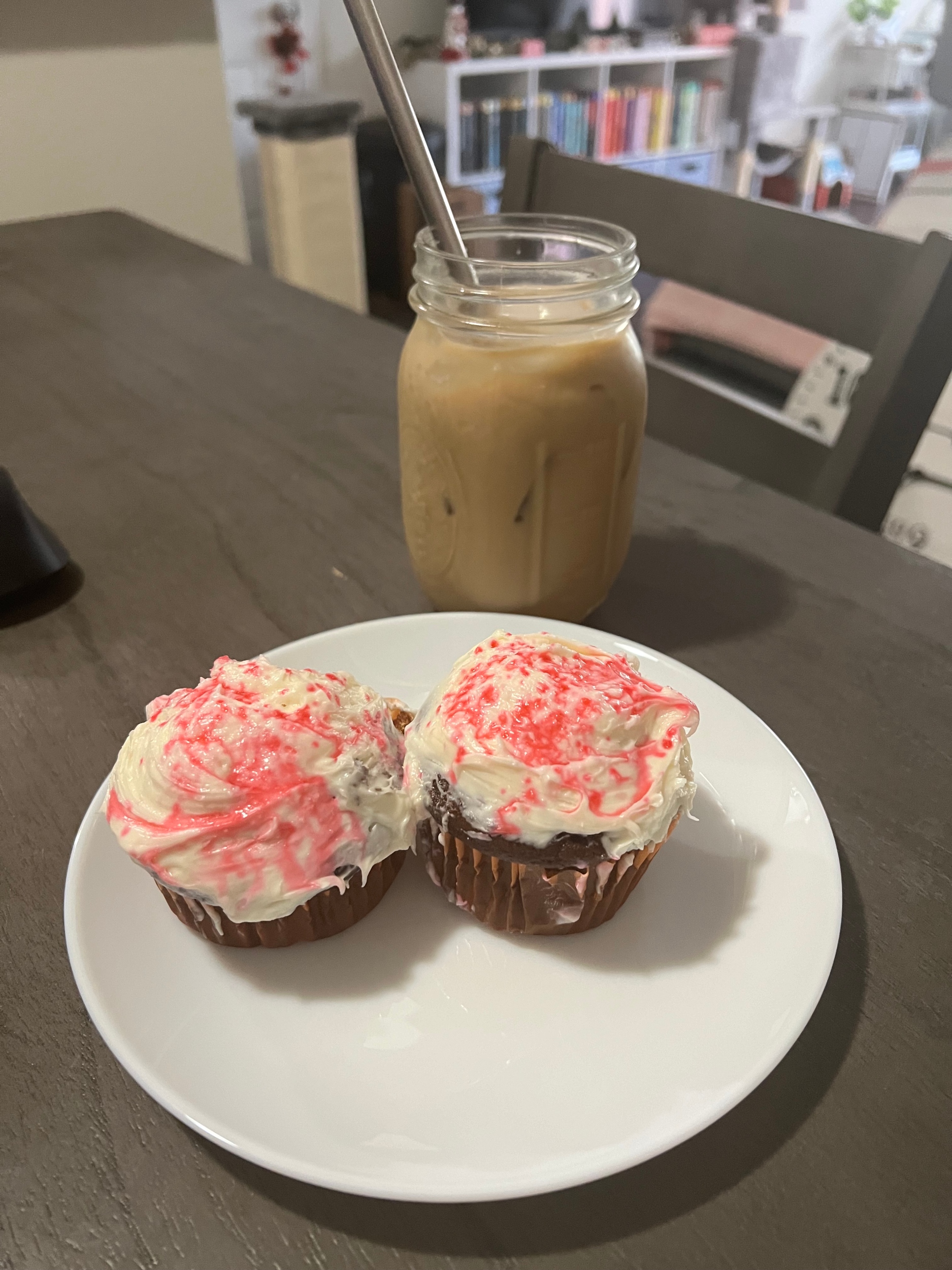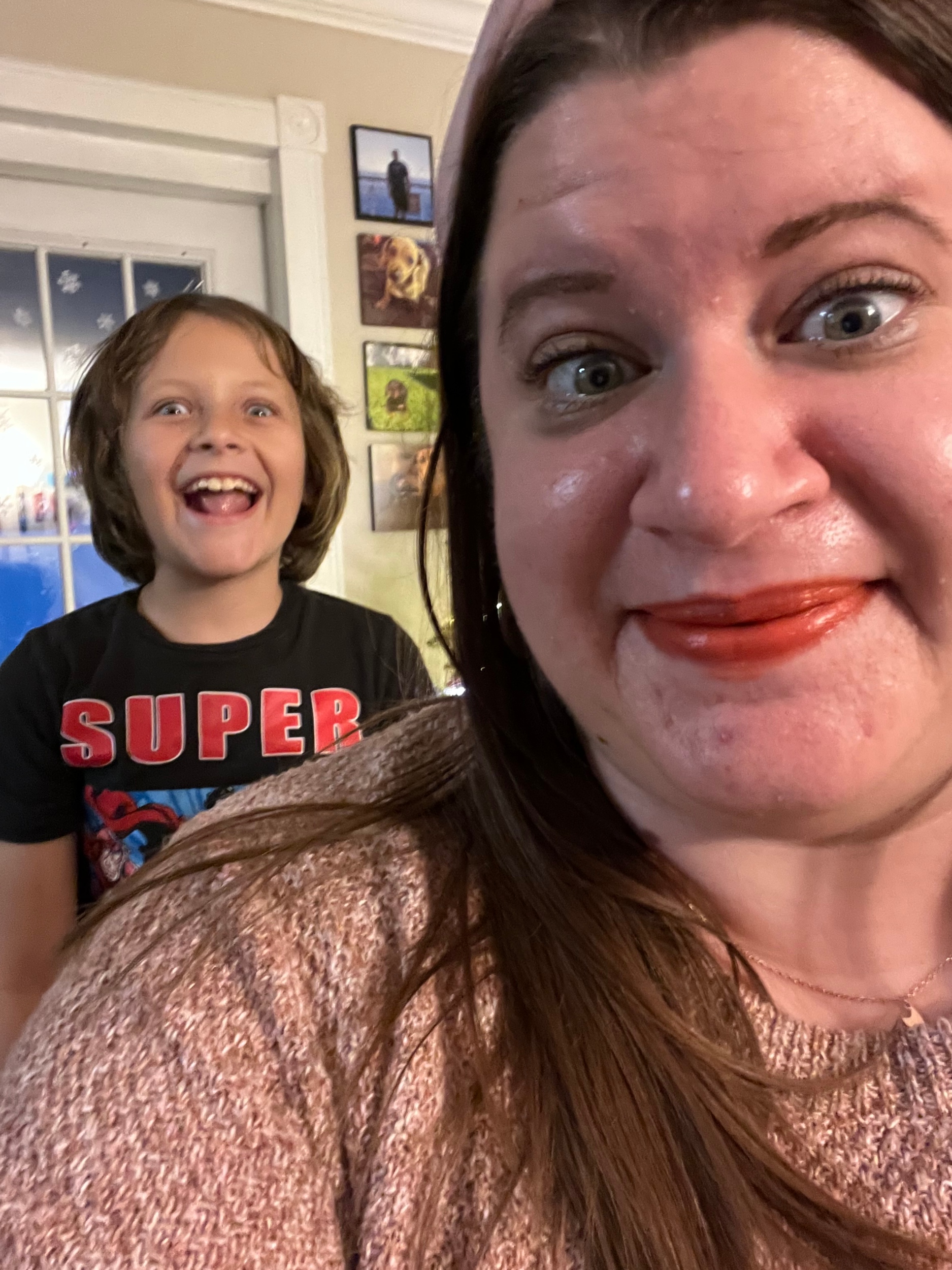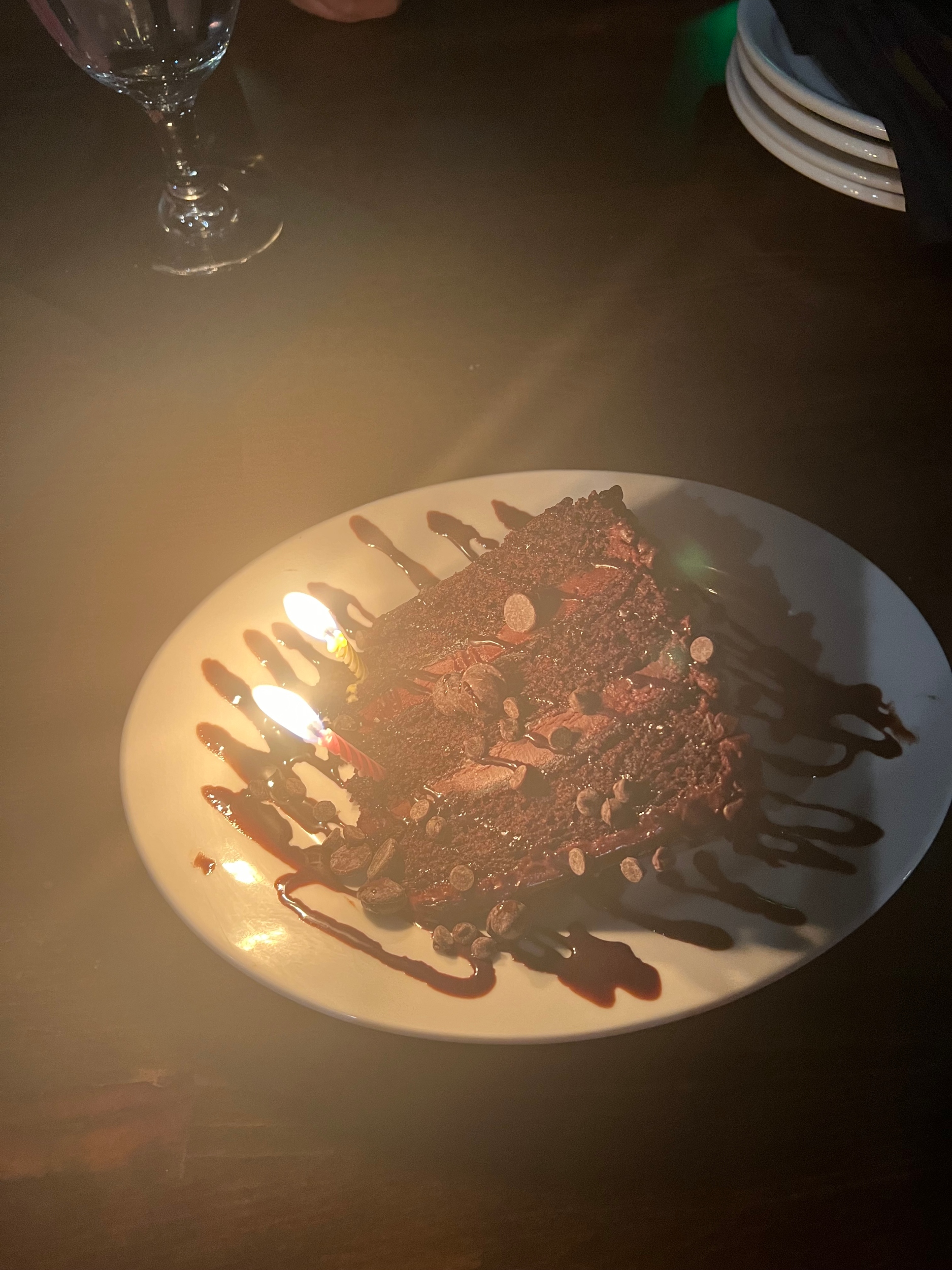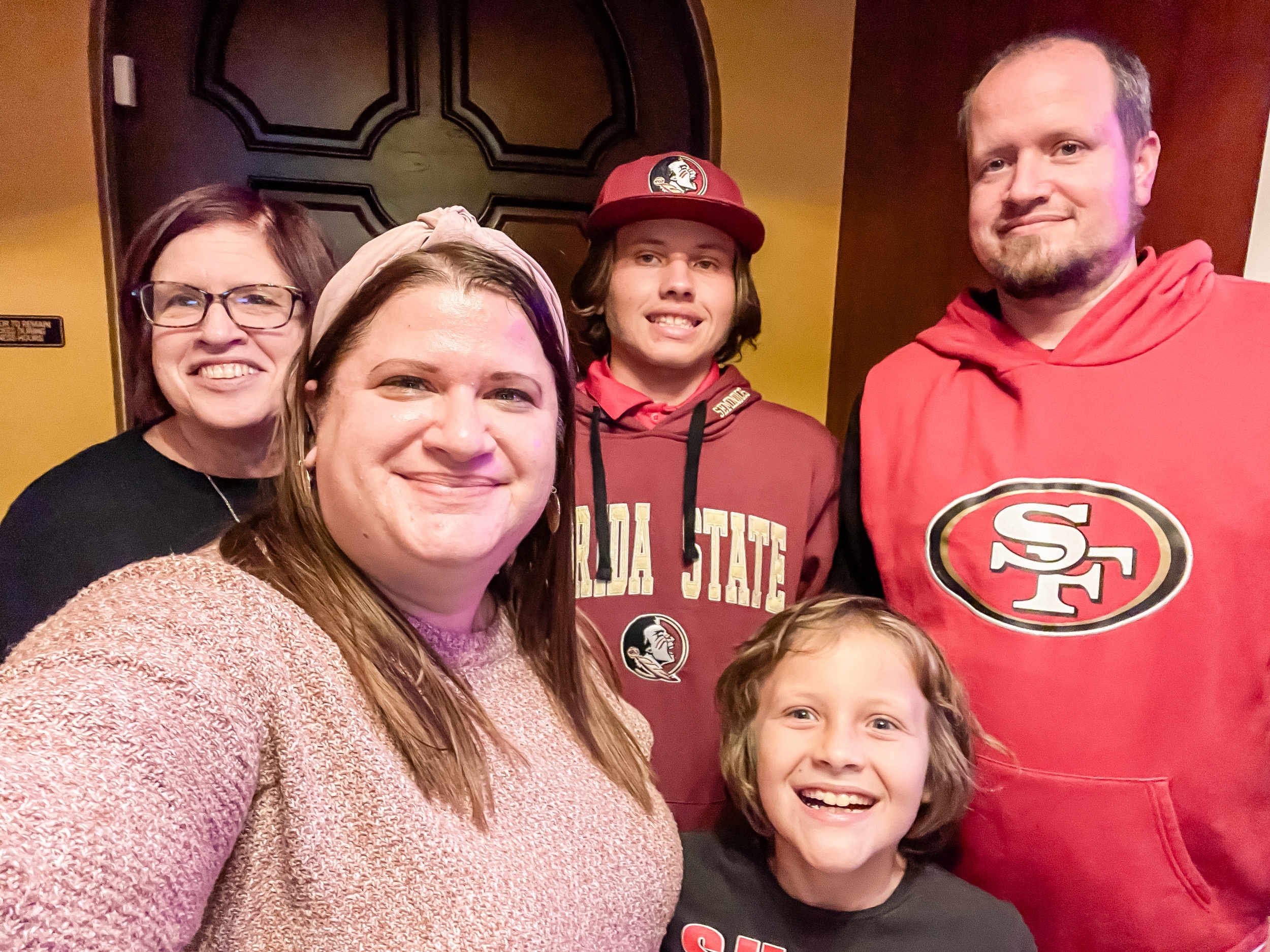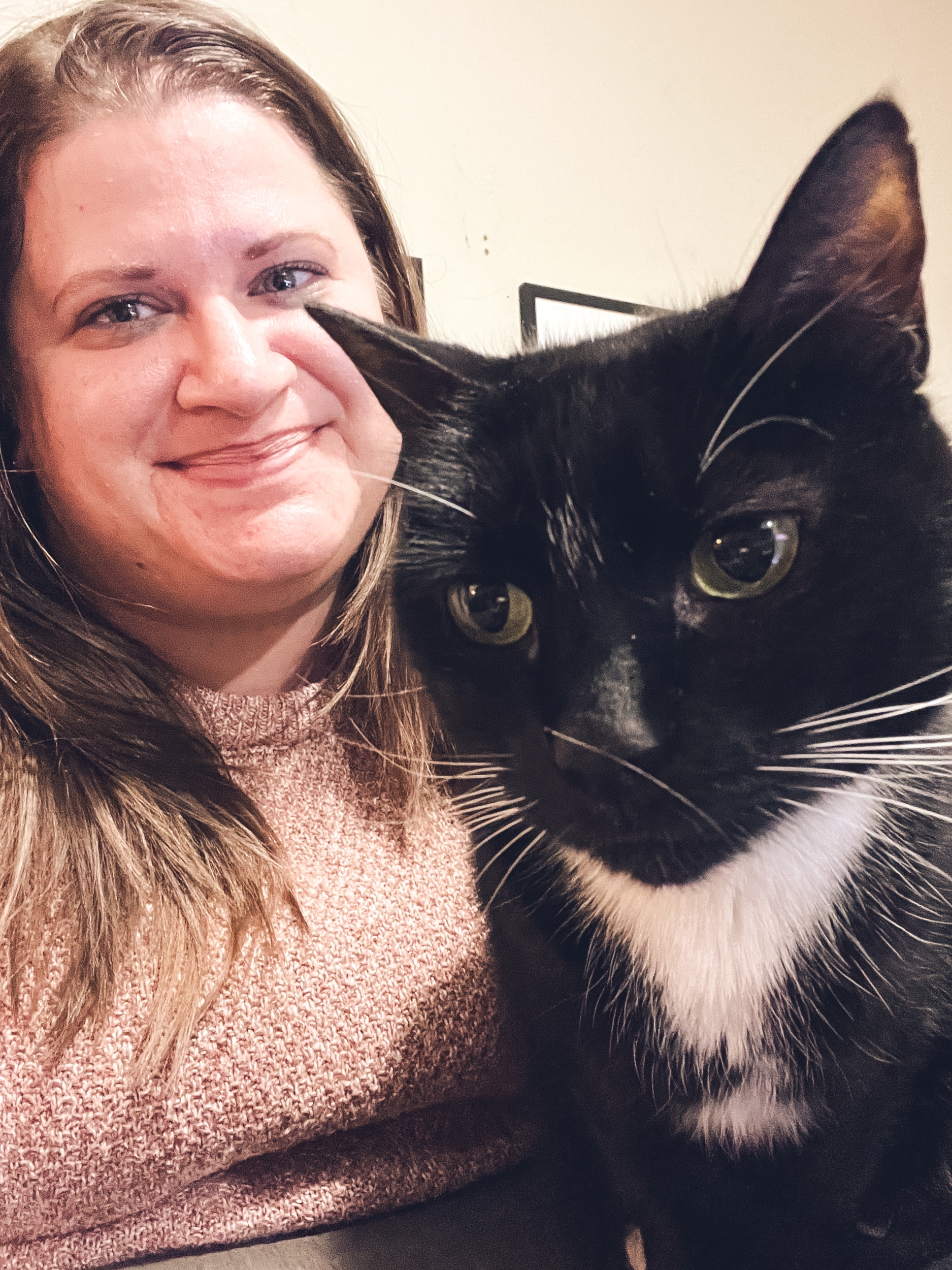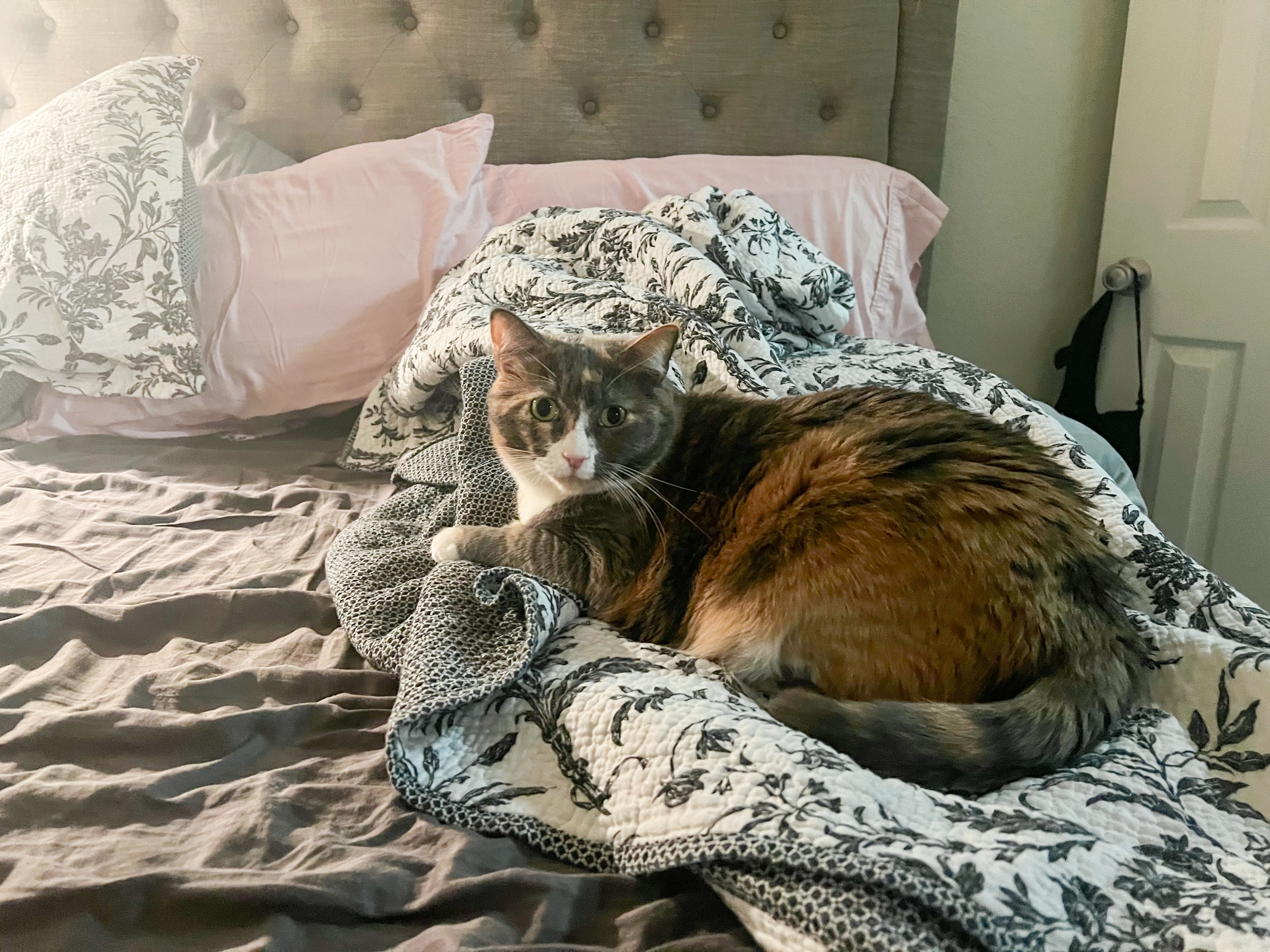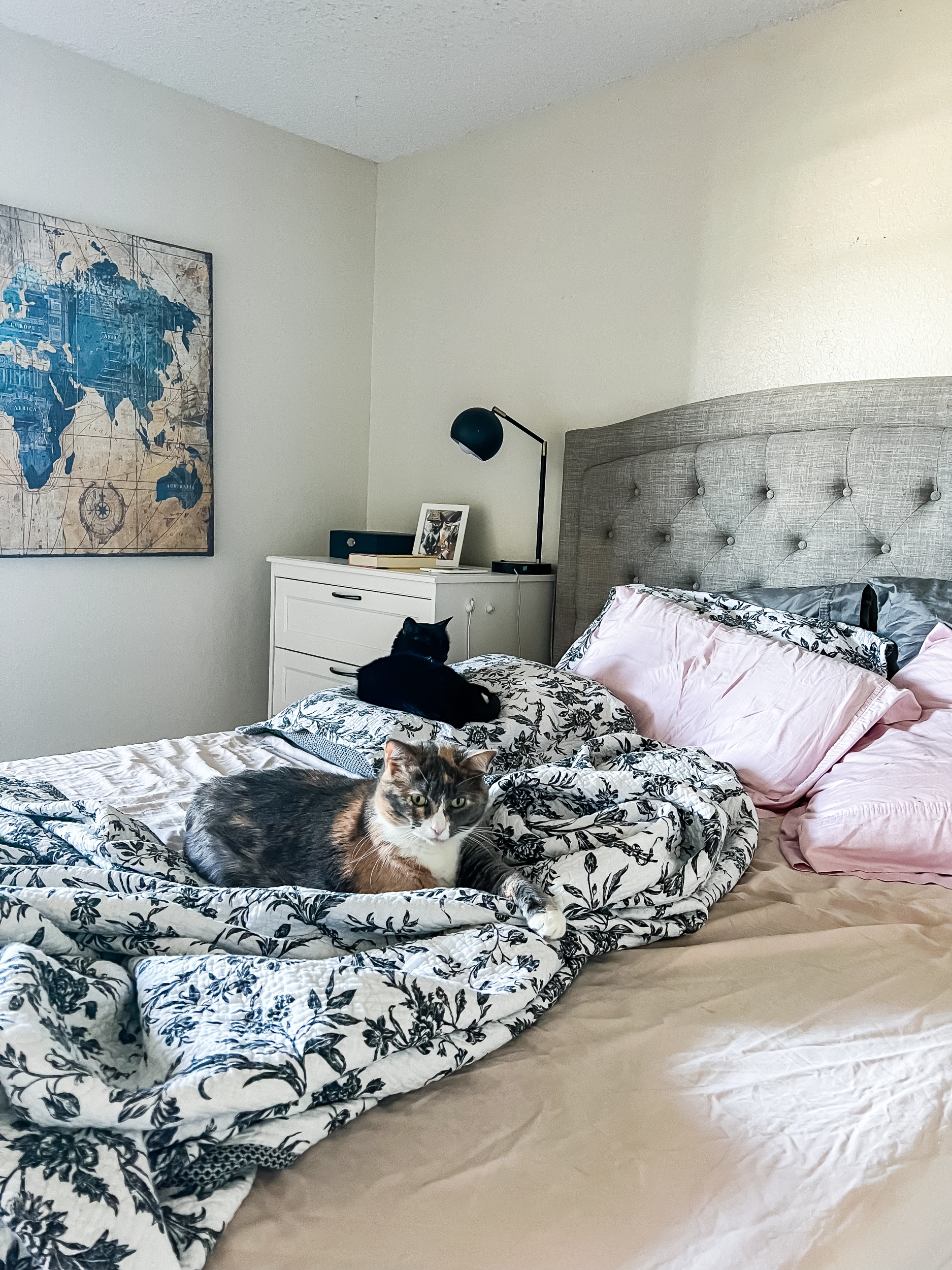Cupcakes for breakfast? Of course! It’s my birthday!
My mom and I met up for lunch at one of our favorite delis. I didn’t eat much (I had a late breakfast), but I did enjoy hanging out with my mom in the middle of her workday.
After lunch with my mom, I popped over to my favorite local indie bookstore, Tombolo Books. I took my time perusing their shelves before settling on a sapphic romance by one of my new faves and the latest book from Nita Prose. (I loved The Maid!)
After bookstore shopping, I went to Starbucks to get my free birthday drink. I had some time to kill so I found a cozy chair and read about 70 pages of this adorable romance while I sipped on my peppermint mocha. (I also got a warm cookie!)
I booked a facial at my local Hand & Stone spa for 4pm. I always love to do a facial or massage on my birthday—it’s the height of luxury! (And if you can afford it, I think you should do it as well!) I’ll be able to use my wellness reimbursement towards this facial so it was free for me. The hour flew by and before I knew it, my spa time was over and it was time to get back to the real world. Wah!
I headed over to my mom’s house after the facial because we had dinner reservations with my brother and his family. I kept trying to take a selfie and my younger nephew kept trying to “photobomb” me, ha.
We went to a new restaurant for dinner that wound up being very expensive, but my mom was gracious enough not to hate me for picking such a fancy restaurant, ha. Our dinner was delicious, though! And the restaurant let me choose a free dessert for my birthday. Best of all, they lit two candles and did not sing to me. Whew. Crisis averted!
An us-ie after dinner! My brother hates taking pictures, but he suffers for me. I love these people so much.
I have to give some love to my ladies! After dinner, I came home and started working on this post. Ellie wanted some extra attention, which I was happy to give to her.
And, finally, my Lila Bear. She was all tucked in for the night and ready for me to come to bed! Unfortunately, I had some tidying up to do and a nighttime routine to tackle.
All in all, a very excellent birthday. It was a great way to start this new trip around the sun!
How do you like to celebrate your birthday?
